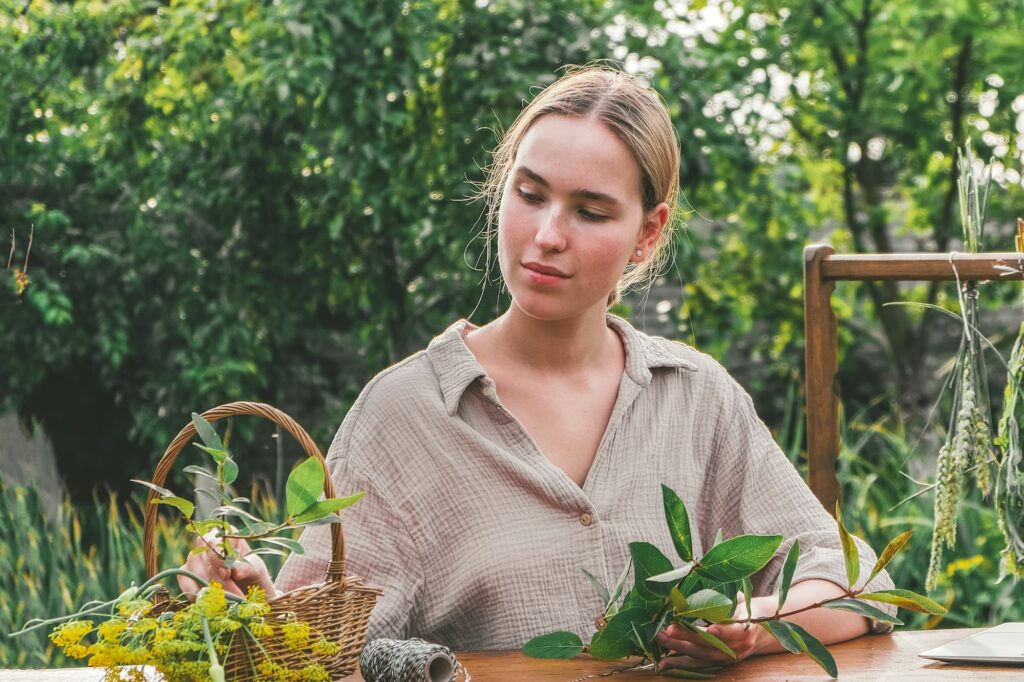Botanical Therapies

Botanical Therapies
Embracing Plant-Based Healing for Comprehensive Wellness
In the world of holistic wellness, Botanical Therapies have stood the test of time, offering a natural and effective approach to health and healing. Drawing from the earth’s bounty, these therapies utilize the medicinal properties of plants to address a wide range of health concerns, from acute conditions to chronic illnesses.
What are Botanical Therapies?
Botanical Therapies encompass the use of plants and herbal formulations to enhance health and treat diseases. These natural remedies employ various plant parts, including leaves, roots, berries, and flowers, transforming them into teas, tinctures, capsules, and topical applications to harness their healing properties.
How Can Botanical Therapies Help You?
Integrating Botanical Therapies into your wellness routine can lead to improved health outcomes by addressing underlying causes of illness rather than just symptoms. These therapies offer support for immune function, stress reduction, digestive health, and more, contributing to overall vitality and well-being.
What are Botanical Therapies Good For?
Botanical Therapies are versatile and can be used to treat a multitude of conditions. They are particularly beneficial for managing chronic diseases, alleviating skin conditions, enhancing hair health, and promoting a more youthful appearance through natural means.
Types of Botanical Therapies
- Herbal Medicine: This involves using the leaves, flowers, stems, roots, or seeds of plants for medicinal purposes. Examples include echinacea for immune support, ginger for digestive issues, and ginkgo biloba for cognitive function.
- Aromatherapy: This uses essential oils extracted from plants to promote physical and psychological well-being. Essential oils can be inhaled, applied to the skin, or used in aromatherapy massage.
- Ayurvedic Medicine: Originating from India, Ayurvedic medicine uses a variety of botanical preparations, including herbs, spices, and dietary supplements, to balance the body and promote health.
- Traditional Chinese Medicine (TCM): TCM incorporates a wide range of botanical therapies, such as herbal formulas, acupuncture, and dietary therapy, to treat various conditions.
Commonly Used Plants in Botanical Therapies
- Echinacea: Often used to support the immune system and reduce the severity of cold symptoms.
- Ginseng: Known for its potential to boost energy, lower blood sugar and cholesterol levels, and reduce stress.
- Turmeric: A powerful anti-inflammatory and antioxidant used in traditional medicine to treat a variety of conditions.
- Peppermint: Used to soothe digestive issues such as indigestion, gas, and bloating.
- Lavender: Widely used in aromatherapy for its calming and relaxing effects.
Benefits of Botanical Therapies
The advantages of embracing Botanical Therapies include reduced reliance on synthetic medications, minimal side effects, and a holistic approach to health that considers the individual’s entire well-being, including physical, emotional, and environmental factors.
What to Expect from Botanical Therapies with a Practitioner
Consultations with a practitioner specialized in Botanical Therapies involve a thorough assessment of health history, current conditions, and wellness goals. Treatments are then tailored to meet individual needs, providing personalized care that aligns with one’s unique health journey.
Similar Modalities to Botanical Therapies
- Aromatherapy: Uses essential oils derived from plants for healing and relaxation.
- Homeopathy: Employs highly diluted substances to stimulate the body’s healing processes.
- Ayurveda: An ancient Indian system that incorporates herbal medicine for overall balance and health.
Final Thoughts
Botanical Therapies offer a gateway to natural, holistic healing, enabling individuals to tap into the restorative power of plants. By incorporating these therapies into your health regimen, you can embrace a path to enhanced wellness, drawing from the wisdom of traditional medicine and the insights of modern research.
Scientific References:
- Tapsell, L.C., et al. (2006). Health benefits of herbs and spices: the past, the present, the future. Medical Journal of Australia, 185(S4), S4-S24. https://doi.org/10.5694/j.1326-5377.2006.tb00548.x
- Chevallier, A. (1996). The Encyclopedia of Medicinal Plants. DK Publishing. This comprehensive guide covers a wide array of plants and their medicinal uses, reflecting the principles of Botanical Therapies.
- Bone, K., & Mills, S. (2013). Principles and Practice of Phytotherapy: Modern Herbal Medicine. Churchill Livingstone. This book provides an in-depth exploration of herbal medicine’s modern clinical applications, offering insights relevant to Botanical Therapies.
Books from Amazon:
- Hoffmann, D. (2003). Medical Herbalism: The Science and Practice of Herbal Medicine. Healing Arts Press. This text delves into the foundational and clinical aspects of herbal medicine, correlating with the holistic approach of Botanical Therapies.
- Rabe, K. (2020). The Business of Botanicals; Exploring the Healing Promise of Plant Medicine in a Global Industry. ForeWord.
- Green, J. (2000). The Herbal Medicine-Maker’s Handbook: A Home Manual. Crossing Press. This handbook provides practical instructions for creating various herbal preparations, allowing readers to apply the principles of Botanical Therapies in their own homes.
FAQ on Botanical Therapies
Welcome to our Frequently Asked Questions (FAQ) section. Here, we aim to provide clear and concise answers to common queries you may have about this particular healing modality. Whether you’re new to this practice or seeking deeper insights, our FAQs are designed to help enhance your understanding and support your journey toward holistic wellness. If you have a general question that’s not covered below, please feel free let us know.
When used correctly under the guidance of a qualified practitioner, Botanical Therapies are generally safe and effective. However, it is crucial to communicate all health conditions and medications to avoid adverse interactions.
The time frame varies based on the individual and the condition being treated. Some may experience relief quickly, while others may see gradual improvements over time.
While Botanical Therapies can complement conventional treatments, they should not replace them without professional advice. Always consult with healthcare providers before making any changes to treatment plans.
Botanical Therapies can address a wide range of conditions, including anxiety, digestive issues, skin problems, hormonal imbalances, and chronic diseases, among others.
Look for practitioners with certified training in herbal medicine or related fields and check their credentials and reviews. Referrals from healthcare professionals or trusted sources can also be valuable.



